Second session of the 2020 level 2 (Blue) marine educator training course
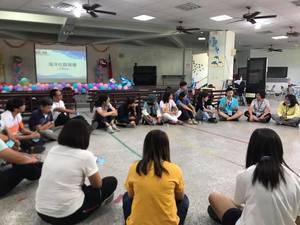
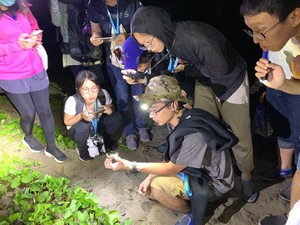
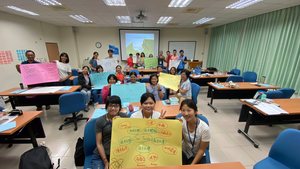
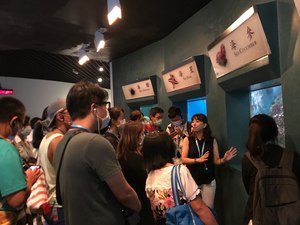
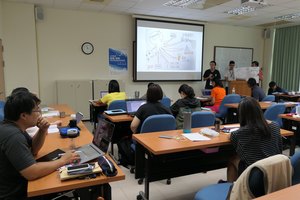
Early this year, we collaborated with the Marine Educational Resource Center of a senior high school, New Taipei Municipal Hsin Tien Senior High School, to conduct a session of training courses for blue level/advanced marine educators. From July 27th to 31st, during summer vacation, the second session was held. This session was held at the National Museum of Marine Biology & Aquarium and eventually extended to 5 days, and the course content was substantially modified. In addition to learning new knowledge and teaching skills, educators had more time and opportunity to communicate with one another and to develop crossdomain marine teaching methods.
On the first day, we visited Donggang Harbor and Donglong Temple to experience the fishing village and religious culture with enhanced learning motivation. On the second day, we started at the museum to better understand the development of aquaculture, development and applications of seaweed, and fish diversity and conservation. We visited the specimen room in the museum and acquired hands-on experience in making specimens. In the evening, despite wind and rain, the educators went out to observe land crabs and had satisfactory experience. In the morning of the third day, we discussed shark conservation and fishery management and learned Taiwanese names of various types of seafood. This experience resembled a visit to a fish market. In the afternoon, we visited the museum for education purposes. In the evening, the educators shared their experience in marine education. On the fourth day, we visited the aquarium laboratory—the backstage resources of the museum —continuing to explore the museum’s various education resources. In courses on event planning and teaching, research, and development, lecturers instructed the educators to gradually develop crossdomain courses. Later in the evening, the educators prepared their final-day presentations.
The courses focused on education in fish consumption, hoping to bring educators’ attention to this topic and to develop their knowledge. Through cooperation and brainstorming, innovative educational content was created. In the final-day presentation, the educators incorporated fish consumption concepts into their instructional field. In addition, they assumed leadership roles with the aim of helping more people become “seed teachers” for marine education.
In July, the Coronavirus pandemic slowed down. The marine education resource centers in Miaoli, Yilan, and Taitung Counties held courses training green level/beginner marine educators. The in-service teacher training program provided by the teacher training center at our school incorporated the green-level training courses with the hope that the newly trained marine-education seed teachers could join the team promoting marine education to enhance the development capacity of marine education in various cities and counties.

